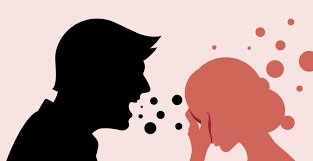
Toxic relationships often lack mutual respect, with partners frequently engaging in belittlement, insults, or demeaning behavior. Respect, a foundational element of a healthy relationship, is notably missing and can result in emotional damage. Toxic partnerships are frequently characterized by unrelenting criticism and nit-picking. Partners may habitually find fault in each other's actions, eroding self-esteem and cultivating a persistently negative atmosphere.

Toxic individuals often seek to exert control over various facets of their partner's life. This can involve isolating them from their social circles, closely monitoring their activities, or employing emotional manipulation to achieve their own ends. Effective communication is a vital component of any relationship. In toxic ones, communication may entail yelling, stonewalling, or avoidance of discussions altogether, leading to unresolved conflicts and festering resentment.
Overwhelming jealousy and possessiveness are telltale signs of toxicity. Partners may exhibit excessive suspicion, demand continual reassurance, and curtail the other's independence. Emotional abuse can manifest in various ways, such as gaslighting (undermining the other's perception of reality), giving the silent treatment, or maintaining constant mood swings to keep the other off balance.
In extreme cases, toxic relationships may involve physical abuse or threats of violence, posing a clear and immediate danger. Healthy relationships offer emotional support and encouragement. Conversely, toxic partners may undermine each other's goals and dreams, leaving one feeling unsupported.
Toxic relationships tend to leave issues unresolved. A recurring pattern of conflict may occur, interspersed with temporary reconciliations, followed by a return to conflict. Toxic relationships are emotionally exhausting, constantly inducing stress, anxiety, and unhappiness.




 click and follow Indiaherald WhatsApp channel
click and follow Indiaherald WhatsApp channel